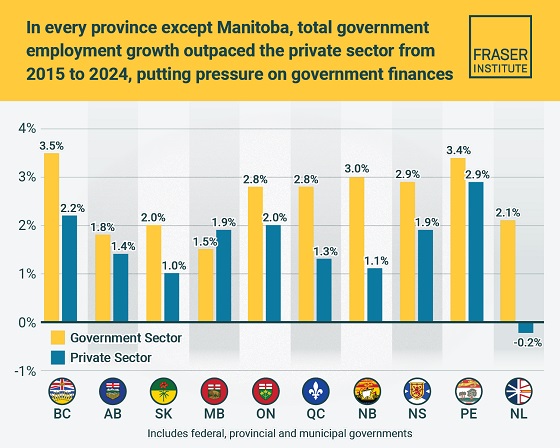Alberta
Alberta fuel tax hike coming same day as carbon tax hike

News release from the Canadian Taxpayers Federation
The Canadian Taxpayers Federation is urging the Alberta government to scrap its fuel tax hike planned for April 1.
“The Trudeau government is already slapping us with a carbon tax hike and the last thing Albertans need is to be punched by their own provincial government,” said Kris Sims, CTF Alberta Director. “You can’t tear a strip off the prime minister for jacking up his carbon tax and turn around and hike your own fuel tax by even more on the same day, what gives?”
Right now, the provincial fuel tax costs nine cents per litre.
The Alberta government quietly noted in its 2024-25 budget that it’s planning on hiking the provincial fuel tax back up to 13 cents per litre of gasoline and diesel starting April 1.
In the same budget document, the Alberta government reported that fully suspending the fuel tax saved Alberta taxpayers about $1 billion per year.
The CTF questions the need to reinstate the fuel tax since the province reports: “fuel tax revenue is not dedicated to funding construction and maintenance of provincial roads.”
At full cost, the provincial fuel tax adds on about $10 per fill up for a minivan, about $15 for a pickup truck and about $130 extra for a big rig truck using diesel.
The federal carbon tax is also set to jump up at the end of the month.
At $80 per tonne, the carbon tax will cost 17 cents per litre of gasoline, 21 cents per litre of diesel and 15 cents per cubic metre of natural gas.
The Parliamentary Budget Officer calculates the average Alberta family will be out more than $900 this year due to the carbon tax, even with rebates factored in.
“Albertans are counting on their provincial government to shield them against Trudeau’s carbon tax and instead they are getting a provincial tax hike at the pumps, too,” said Sims. “It’s a mystery why the NDP government in Manitoba has suspended its provincial fuel tax, saving drivers 14 cents per litre, but Albertans are seeing their fuel taxes going back up.”
Alberta
New pipeline from Alberta would benefit all Canadians—despite claims from B.C. premier

From the Fraser Institute
The pending Memorandum of Understanding between the Carney government and the Alberta governments will reportedly support a new oil pipeline from Alberta’s oilsands to British Columbia’s tidewater. But B.C. Premier David Eby continues his increasingly strident—and factually challenged—opposition to the whole idea.
Eby’s arguments against a new pipeline are simply illogical and technically incorrect.
First, he argues that any pipeline would pose unmitigated risks to B.C.’s coastal environment, but this is wrong for several reasons. The history of oil transport off of Canada’s coasts is one of incredible safety, whether of Canadian or foreign origin, long predating federal Bill C-48’s tanker ban. New pipelines and additional transport of oil from (and along) B.C. coastal waters is likely very low environmental risk. In the meantime, a regular stream of oil tankers and large fuel-capacity ships have been cruising up and down the B.C. coast between Alaska and U.S. west coast ports for decades with great safety records.
Next, Eby argues that B.C.’s First Nations people oppose any such pipeline and will torpedo energy projects in B.C. But in reality, based on the history of the recently completed Trans Mountain Expansion (TMX) pipeline, First Nations opposition is quite contingent. The TMX project had signed 43 mutual benefit/participation agreements with Indigenous groups along its route by 2018, 33 of which were in B.C. As of March 2023, the project had signed agreements with 81 out of 129 Indigenous community groups along the route worth $657 million, and the project had resulted in more than $4.8 billion in contracts with Indigenous businesses.
Back in 2019, another proposed energy project garnered serious interest among First Nations groups. The First Nations-proposed Eagle Spirit Energy Corridor, aimed to connect Alberta’s oilpatch to a port in Kitimat, B.C. (and ultimately overseas markets) had the buy-in of 35 First Nations groups along the proposed corridor, with equity-sharing agreements floated with 400 others. Energy Spirit, unfortunately, died in regulatory strangulation in the Trudeau government’s revised environmental assessment process, and with the passage of the B.C. tanker ban.
Premier Eby is perfectly free to opine and oppose the very thought of oil pipelines crossing B.C. But the Supreme Court of Canada has already ruled in a case about the TMX pipeline that B.C. does not have the authority to block infrastructure of national importance such as pipelines.
And it’s unreasonable and corrosive to public policy in Canada for leading government figures to adopt positions on important elements of public policy that are simply false, in blatant contradiction to recorded history and fact. Fact—if the energy industry is allowed to move oil reserves to markets other than the United States, this would be in the economic interest of all Canadians including those in B.C.
It must be repeated. Premier Eby’s objections to another Alberta pipeline are rooted in fallacy, not fact, and should be discounted by the federal government as it plans an agreement that would enable a project of national importance.
Alberta
Premier Danielle Smith says attacks on Alberta’s pro-family laws ‘show we’ve succeeded in a lot of ways’

From LifeSiteNews
Recent legislation to dial back ‘woke progressivism’ is intended to protect the rights of parents and children despite opposition from the left.
Alberta Premier Danielle Smith took a shot at “woke progressivism” and detractors of her recent pro-family laws, noting that because wokeness went “too far,” the “dial” has turned in favor of parental rights and “no one” wants their “kid to transition behind their back.”
“We know that things went a little bit too far with woke progressivism on so many fronts and we’re trying to get back to the center, trying to get them back to the middle,” Smith said in a recent video message posted on the ruling United Conservative Party’s (UCP) official X account.
Smith, who has been battling the leftist opposition New Democratic Party (NDP) attacks on her recent pro-family legislation, noted how “we’ve succeeded in a lot of ways.”
“I think we have moved the dial on protecting children and the right of girls and women to participate in sports without having to face born male athletes,” mentioning that the Olympics just announced gender-confused athletes are not allowed to compete in male or female categories.
“I think we’re moving the dial on parental rights to make sure that they know what’s going on with their kids. No one wants their kid to be transitioned behind their back and not know. I mean, it doesn’t matter what your background is, you want to know what’s going on with your child.”
Smith also highlighted how conservatives have “changed the entire energy conversation in the country, we now have we now have more than 70 percent of Canadians saying they believe we should build pipelines, and that we should be an energy superpower.’
As reported by LifeSiteNews, Smith recently said her government will use a rare constitutional tool, the notwithstanding clause, to ensure three bills passed this year – a ban on transgender surgery for minors, stopping men from competing in women’s sports, and protecting kids from extreme aspects of the LGBT agenda – remain law after legal attacks from extremist activists.
Bill 26 was passed in December 2024, amending the Health Act to “prohibit regulated health professionals from performing sex reassignment surgeries on minors.”
Last year, Smith’s government also passed Bill 27, a law banning schools from hiding a child’s pronoun changes at school that will help protect kids from the extreme aspects of the LGBT agenda.
Bill 27 will also empower the education minister to, in effect, stop the spread of extreme forms of pro-LGBT ideology or anything else allowed to be taught in schools via third parties.
Bill 29, which became law last December, bans gender-confused men from competing in women’s sports, the first legislation of its kind in Canada. The law applies to all school boards, universities, and provincial sports organizations.
Alberta’s notwithstanding clause is like all other provinces’ clauses and was a condition Alberta agreed to before it signed onto the nation’s 1982 constitution.
-

 Artificial Intelligence1 day ago
Artificial Intelligence1 day agoGoogle denies scanning users’ email and attachments with its AI software
-

 Alberta1 day ago
Alberta1 day agoPremier Danielle Smith says attacks on Alberta’s pro-family laws ‘show we’ve succeeded in a lot of ways’
-

 Business19 hours ago
Business19 hours agoBlacked-Out Democracy: The Stellantis Deal Ottawa Won’t Show Its Own MPs
-

 Alberta1 day ago
Alberta1 day agoNew pipeline from Alberta would benefit all Canadians—despite claims from B.C. premier
-

 Business2 days ago
Business2 days agoIs affirming existing, approved projects truly the best we can do in Canada?
-

 MAiD2 days ago
MAiD2 days agoHealth Canada suggests MAiD expansion by pre-approving ‘advance requests’
-

 Business2 days ago
Business2 days agoTaxpayers paying wages and benefits for 30% of all jobs created over the last 10 years
-

 Health1 day ago
Health1 day agoOrgan donation industry’s redefinitions of death threaten living people






